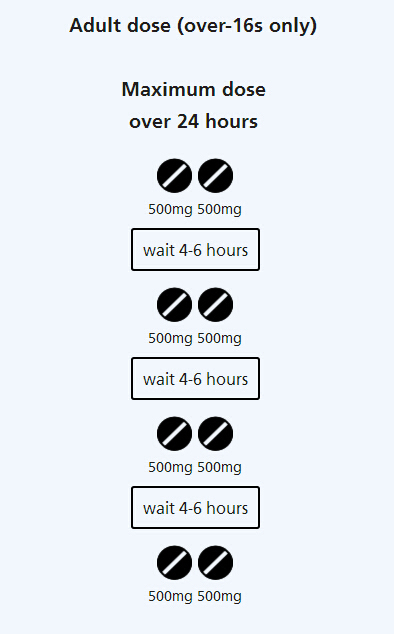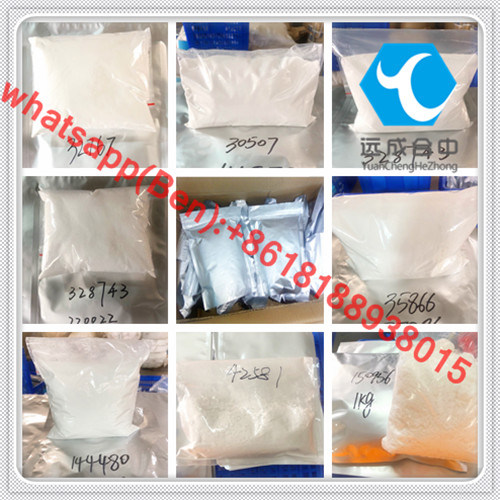Non-steroidal raw powder Paracetamol(Acetaminophen) for Anti-inflammatory and antipyretic analgesia
Model NO.: cas 103-90-2
Trademark: zzyc
Transport Package: 25kg
Specification: Paracetamol powder
Origin: China
Model NO.: cas 103-90-2
Trademark: zzyc
Transport Package: 25kg
Specification: Paracetamol powder
Origin: China
Non-steroidal raw powder Paracetamol(Acetaminophen) for Anti-inflammatory and antipyretic analgesiaCAS: 103-90-2
Moleacular Formula: C8H9NO2
Molecular Weight: 151.16
EINECS: 203-157-5
Standard: Department (Professional) Standard
There is no card: Yes card
Natural/Synthetic: Synthesis
Level: Pharmaceutical Grade
Content: 99.4%
Appearance: white powder
Packing: 25KG/composite woven bag
Ingredients: Paracetamol
Physicochemical properties: white crystalline or crystalline powder, melting point 168 ~ 172 °C, odorless, slightly bitter taste, soluble in hot water or ethanol, dissolved in acetone, almost insoluble in cold water and petroleum ether.
Category: Flavors & Spices
Industry: Pharmaceuticals
Field: Pharmaceuticals
Deferred products: Antipyretic, analgesic, anti-rheumatic drugs
Use: Non-inflammatory antipyretic analgesics, antipyretic effects similar to aspirin, weak analgesic effect, no anti-inflammatory and anti-rheumatic effects, is the best variety of acetanilide drugs.
Usage and dosage: 1. Adult oral dose. Once 0.3-0.6g, once every 4 hours, or 4 times a day; the amount on the 1st day should not exceed 2g, the course of treatment for fever is generally not more than 3 days, and the analgesic should not exceed 10 days. 2. Children used oral dose. According to body weight 10-15mg/kg or body surface area 1.5g/square meter per day, divided service, once every 4-6 hours; children under 12 years old do not exceed 5 times every 24 hours, treatment does not exceed 5 days .
Usage:
Paracetamol is a common painkiller used to treat aches and pain. It can also be used to reduce fever (38C and above).
It's also available combined with other painkillers and anti-sickness medicines. It's an ingredient in a wide range of cold and flu remedies.
Paracetamol is used to treat many conditions such as headache, muscle aches, arthritis, backache, toothaches, colds, and fevers. It relieves pain in mild arthritis but has no effect on the underlying inflammation and swelling of the joint.

How it works:
it works mainly in the central nervous system (the brain and the spine). Paracetamol is thought to reduce the intensity of pain signals to the brain. It may also prevent the release of substances, called prostaglandins, that increase pain and body temperature.
Function:
At over-the-counter doses, paracetamol is commonly used to provide temporary relief of pain and discomfort associated with:
- Headaches (e.g. migraines, tension headaches)
- Muscle pain (e.g. strains and sprains, sport injuries)
- Backache
- Toothache
- Muscle ache
- Arthritis (including osteoarthritis)
- Cold and flu symptoms
- Fever

| Pharmaceutical raw powder | |||
| Anti-inflammatory and analgesic raws | CAS numbers | Usage | |
| Paracetamol (Acetaminophen) |
103-90-2 | Â | |
| aspirin | 50-78-2 | Â | |
| Paulson | 50-33-9 | Â | |
| Rofecoxib | 162011-90-7 | Â | |
| Ibuprofen | 15687-27-1 | Â | |
| Celecoxib | 169590-42-5 | Â | |
| Phenacetin | 62-44-2 | Â | |
| Naproxen | 22204-53-1 | Â | |
| Flurbiprofen | 5104-49-4 | Â | |
| Indomethacin | 53-86-1 | Â | |
| Itotoxb | 202409-33-4 | Â | |
| Diclofenac diethylamine | 78213-16-8 | Â | |
| Nootropic raws | Â | Â | |
| Noopept | 157115-85-0 | Â | |
| Vinpocetine | 42971-09-5 | Â | |
| Huperzine A | 102518-79-6;120786-18-7 | Â | |
| Idebenone | 58186-27-9 | Â | |
| Sunifiram | 314728-85-3 | Â | |
| PRL-8-53 HCL | 51352-87-5 | Â | |
| Piracetam | 7491-74-9 | Â | |
| Oxitain | 88929-35-5 | Â | |
| Fasocitane | 110958-19-5 | Â | |
| Glycerophosphoryl choline(GPC) |
28319-77-9 Â |
 | |
| Ropinirole hydrochloride | 91374-20-8 | Â | |
| Antidepressant raws | Â | Â | |
| NSI-189 | 1270138-41-4 | Â | |
| Tinipeptin | 30123-17-2 | Â | |
| PHENIBUT | 1078-21-3 | Â | |
| bupropion hydrochloride | 31677-93-7 | Â | |
| Adrafinil | 63547-13-7 | Â | |
| Hypolipidemic raws | Â | Â | |
| Fluvastatin sodium salt | 93957-55-2 | Â | |
| Ezetimibe Ezetimibe |
163222-33-1 Â |
 | |
| Atorvastatin calcium | 134523-03-8 | Â | |
| fenofibrate | 49562-28-9 | Â | |
| Rosuvastatin Calcium | 147098-20-2 | Â | |
| Other raws | Â | Â | |
| Lappaconite Hydrobromide |
97792-45-5 Â |
Analgesics | |
|
Propacetamol |
66532-86-3 | Postoperative antipyretic analgesics | |
| Nikethamide | 59-26-7 | Central stimulant | |
| Doxapram Hydrochloride | 7081-53-0 | Central stimulant | |
| Levamisole Hydrochloride | 16595-80-5 | Anthelmintics | |
| Rabeprazole sodium | 117976-90-6 | Treat peptic ulcer | |
| Pregabalin | 148553-50-8 | Antiepileptic raws | |
| Desmopressin Acetate | 16789-98-3 | Antidiuretic raws | |
| Formamidine acetate | 3473-63-0 | Anti-tumor raws intermediates | |
| loperamide hydrochloride | 34552-83-5 | Treat dysentery | |
| Bisibutiamine,Sulbutiamine | 3286-46-2 | Vitamin raws | |
| Î’-Nicotinamide mononucleotide |
1094-61-7 Â |
Anti-aging raws | |
| Bezoxazocine,(Fenazoxine;Nefopam Hydrochloride) |
13669-70-0 Â |
Pain-killer raws | |
| Nicotinamide ribose |
1341-23-7 Â |
Derivatives of vitamin B3 | |
| Chlorphenamin(Chlorpheniramine Maleate) | 113-92-8 | Antihistamines | |
| Phenylephrine Hydrochloride |
61-76-7 Â |
Maintain blood pressure, control tachycardia | |
| Velpatasvir |
|
Anti-hepatitis C raws | |
| Levetiracetam | 102767-28-2 | Anti epileptic raws | |
| Levodopa | 59-92-7 | Anti parkinson raws | |
| Cefoperazone acid |
62893-19-0 Â |
Cefoperazone sodium intermediate | |
| Cefoperazone sodium | 62893-20-3 | intermediate | |
| Clopidogrel sulfate(Clopidogrel bisulphate) | 135046-48-9;120202-66-6 | Anti thrombotic raws | |
| Rivaroxaban | 366789-02-8 | Anticoagulants | |
| posaconazole | 171228-49-2 | Antifungal raws | |
| Manidipine dihydrochloride | 89226-75-5 | Lower blood pressure | |
| Sitagliptin phosphate monohydrate |
654671-77-9 Â |
Hypoglycemic raws | |
| Pirfenidone(PFD) | 53179-13-8 | Antifibrotic raws | |
| Spongouridine | 3083-77-0 | Hematopoietic raws | |
| Tepotinib(EMD 1214063) | 1100598-32-0 | Anticancer raws | |
| Picoprofen |
112017-99-9 Â |
Sterilization and anti-inflammatory | |
| Misoprostol | 59122-46-2 | Treat Hemorrhagic peptic ulcer | |
| Sodium picosulfate | 10040-45-6 | Laxatives | |
| Sildenafil | 139755-83-2 | Sex enhancerment | |
| D-Panthenol | 81-13-0 | Feed raws | |
| Berbamine Hydrochloride |
6078-17-7 Â |
Chemotherapy, radiotherapy and chronic leucopenia caused by benzene poisoning | |
| Artemether | 71963-77-4 | Anti-chloroquine falciparum and dangerous malaria | |
| Tea saponin | 8047-15-2 | Surface activity of tea saponin | |
| Chlorhexidine di(acetate) | 56-95-1 | Broad-spectrum bactericide | |
| Butyl hydroxyanisole | 25013-16-5 | Antioxidants | |
| Antioxidant BHT | 128-37-0 | Delay food rancidity | |
CAS: 103-90-2
Moleacular Formula: C8H9NO2
Molecular Weight: 151.16
EINECS: 203-157-5
Standard: Department (Professional) Standard
There is no card: Yes card
Natural/Synthetic: Synthesis
Level: Pharmaceutical Grade
Content: 99.4%
Appearance: white powder
Packing: 25KG/composite woven bag
Ingredients: Paracetamol
Physicochemical properties: white crystalline or crystalline powder, melting point 168 ~ 172 °C, odorless, slightly bitter taste, soluble in hot water or ethanol, dissolved in acetone, almost insoluble in cold water and petroleum ether.
Category: Flavors & Spices
Industry: Pharmaceuticals
Field: Pharmaceuticals
Deferred products: Antipyretic, analgesic, anti-rheumatic drugs
Use: Non-inflammatory antipyretic analgesics, antipyretic effects similar to aspirin, weak analgesic effect, no anti-inflammatory and anti-rheumatic effects, is the best variety of acetanilide drugs.
Usage and dosage: 1. Adult oral dose. Once 0.3-0.6g, once every 4 hours, or 4 times a day; the amount on the 1st day should not exceed 2g, the course of treatment for fever is generally not more than 3 days, and the analgesic should not exceed 10 days. 2. Children used oral dose. According to body weight 10-15mg/kg or body surface area 1.5g/square meter per day, divided service, once every 4-6 hours; children under 12 years old do not exceed 5 times every 24 hours, treatment does not exceed 5 days .
Usage:
Paracetamol is a common painkiller used to treat aches and pain. It can also be used to reduce fever (38C and above).
It's also available combined with other painkillers and anti-sickness medicines. It's an ingredient in a wide range of cold and flu remedies.
Paracetamol is used to treat many conditions such as headache, muscle aches, arthritis, backache, toothaches, colds, and fevers. It relieves pain in mild arthritis but has no effect on the underlying inflammation and swelling of the joint.

How it works:
it works mainly in the central nervous system (the brain and the spine). Paracetamol is thought to reduce the intensity of pain signals to the brain. It may also prevent the release of substances, called prostaglandins, that increase pain and body temperature.
Function:
At over-the-counter doses, paracetamol is commonly used to provide temporary relief of pain and discomfort associated with:
- Headaches (e.g. migraines, tension headaches)
- Muscle pain (e.g. strains and sprains, sport injuries)
- Backache
- Toothache
- Muscle ache
- Arthritis (including osteoarthritis)
- Cold and flu symptoms
- Fever

| Pharmaceutical raw powder | ||
| Anti-inflammatory and analgesic raws | CAS numbers | Usage |
| Paracetamol (Acetaminophen) |
103-90-2 | Â |
| aspirin | 50-78-2 | Â |
| Paulson | 50-33-9 | Â |
| Rofecoxib | 162011-90-7 | Â |
| Ibuprofen | 15687-27-1 | Â |
| Celecoxib | 169590-42-5 | Â |
| Phenacetin | 62-44-2 | Â |
| Naproxen | 22204-53-1 | Â |
| Flurbiprofen | 5104-49-4 | Â |
| Indomethacin | 53-86-1 | Â |
| Itotoxb | 202409-33-4 | Â |
| Diclofenac diethylamine | 78213-16-8 | Â |
| Nootropic raws | Â | Â |
| Noopept | 157115-85-0 | Â |
| Vinpocetine | 42971-09-5 | Â |
| Huperzine A | 102518-79-6;120786-18-7 | Â |
| Idebenone | 58186-27-9 | Â |
|
| ||